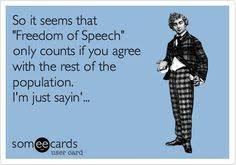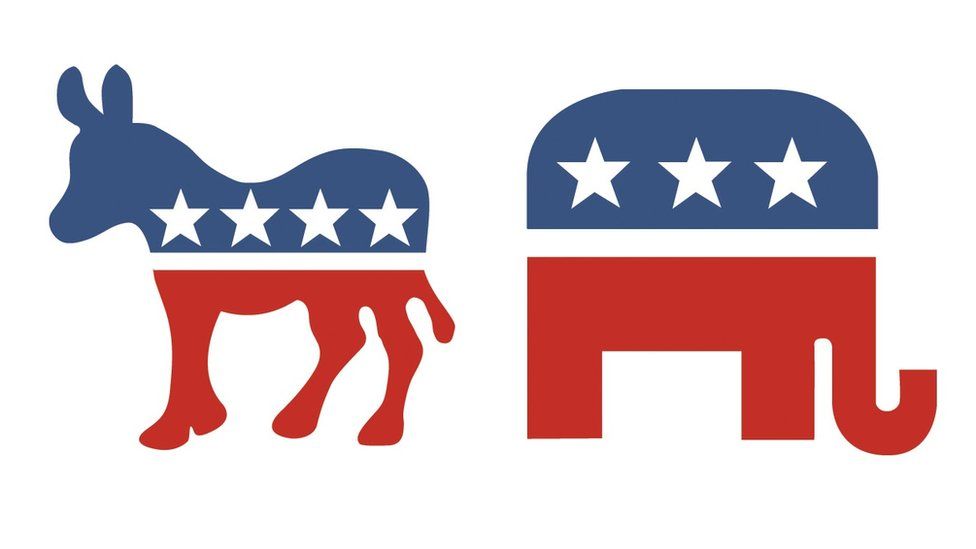- https://www.forbes.com/sites/andrewsolender/2020/09/17/trump-launches-patriotic-education-commission-calls-1619-project-ideological-poison/?sh=450773a4155a
- https://www.npr.org/2020/09/17/914127266/trump-announces-patriotic-education-commission-a-largely-political-move
- https://www.youtube.com/watch?v=gSeht9CtM3s&feature=youtu.be
Tuesday, February 23, 2021
Modern Book Burning
Do I Believe What I Know?
This is my first time reading Fahrenheit 451. I know that a big message in the book is supposedly censorship and what it has done or will do to our society. The implication is how it will affect our future and how censorship is affecting us in the present day.
However, I came across a certain passage that makes me question in what ways we have already been affected by censorship. How much of our history has already been lost? What of it has been altered?
This thought came to me on page 32, when Montag is thinking about the first "Firemen of America", one of whom is Ben Franklin. This, based on our understanding of history, is absolutely crazy, because we understand Benjamin Franklin to have been a great reader and writer and seemingly someone who would have never condoned the burning of books, instead valuing their insight and all they have to offer. Still, Fahrenheit 451 says that Franklin burned English-influenced books which sounds a little more plausible if you were to twist history in the right places.
But this made me think, how do we KNOW that the history we've learned about is correct? Most people with common sense know that history is not typically written by those who are right, only those who are left. Our society relies on those in power to give us an accurate depiction of history. Thankfully, we have become a society that is much more critical of history, and we question it often, because we know that history is traditionally white, straight, male, and Eurocentric.
Still, I'm not only thinking about who wrote history, but who erased it as well. I often forget about the existence of the Dark Ages, and the centuries of scientific and intellectual oppression. I forget that book burning was extremely prevalent during this time. I forget that book burning was so prevalent that linguistic oppression went hand-in-hand with the scientific, and during this time much of the English language changed altogether, yet we have no record of how or why, only that it did.
But wait, I can't even call them the Dark Ages because the term was coined during the Enlightenment period, and is now a widely discredited term because of how misleading it has become in popular culture. History becomes written and rewritten and rewritten again and yet we have to audacity to frequently assume that what we perceive is Truth. We dare to tell people what they can or can't say or write because it doesn't fit what we understand about the world. But censorship is not the enemy; ignorance is. The belief that one person has the right to shut down another on no basis other than someone might find it offensive.
I would like to reemphasize that I believe in censorship when necessary; specifically when it has the ability to incite harm or violence. Still, I don't agree with censorship occurring only because it disagrees with someone else's world view. Ideas do not deserve to be shut down, no matter how disagreeable they are. I believe this because change will be brought about, but not in the way one might hope. If you shut down a racist's idea rather than have a conversation their opinion will only be strengthened rather than changed. Their ideas may not be agreeable, but they are worth hearing because otherwise we are doomed tot repeat history and destroy each other fighting for what we believe in and we don't know who will come out the winners and who will get to rewrite history once again.
Monday, February 22, 2021
"Banned" Books
As a future educator, the first amendment is a topic of controversy throughout many domains of the classroom and curriculum. The type of speech we allow in the classroom, the way we decide to talk to our students, and the regulations put forth by administration all fall under possible ways in which speech is conserved or limited. However, I want to focus specifically on the notion of banned books, in accordance with this weeks reading of Fahrenheit 451 and specifically being a preservice English Language Arts teacher. Banned books are always something that have peaked my interest, especially since I have read the majority of them. Just for reference, here are a few books included on the Banned Books list:
Captain Underpants - Dave Pilkey
The Hunger Games - Susanna Collins
To Kill A Mockingbird - Harper Lee
The Hate U Give - Angie Thomas
Tuesday, February 16, 2021
Insinuation of Implications
I can't remember the last time I've heard a more tricky case. Schenck v. United States and Baer v. United States struck a nerve with me, for no other reason than it seeming to be a matter of assuming the outcome of intentions. While these may be probable, how is one to know?
The fact of the matter is that, within the document provided to us, there appears to be confusion, contradiction, and doubt. Two quotes appear within this document to cast doubt, and neither are ever rectified or justified:
"It is argued that the evidence, if admissible, was not sufficient to prove that they defendant Schenck was concerned in sending this document."
"It is objected that the documentary evidence was not admissible because obtained upon a search warrant, valid as so appears. The contrary is established. [...] The search warrant did not issue against the defendant but against the Socialist headquarters."
Despite my criticisms of this investigation and the way it was conducted, as well as the way this document presents its content (at one point it simply says "Without going into confirmatory details..." which I am critical of because it omits what is most likely valuable information), I do believe I, in the end, would side with the decision of the defendants being found guilty on all accounts.Why?
I am concerned mostly with context. I am studying to be an English teacher and, though I must teach
it, I am not that concerned with grammar in every day situations. I will not be grading my students on their grammar during informal speech or on a written assignment like an exit pass... because I don't believe it matters. They are still able to convey meaning and get their point across and be understood by their peers and by me. When will I be critical of their grammar? When it is something I actually have to test for to make sure they understand it (i.e., during a speech, in an essay, within a presentation, etc.), because, despite my casual approach to it, grammar does matter. However, context and discourse matters more, in my opinion.
During any other time period, it may have been more acceptable for the defendants in this case to exercise their rights and spread word about their political beliefs, even recruiting people to join them. However, amidst a war, it was inappropriate. Even though this may have been a vital time for the defendants to take action and attempt solicitation, it was an unlawful flex of free speech that could prove damageable to a large population of people and to the country.
However, as a writer, I must also point out that I am critical of this country for the way it conducts business surrounding political views that are different from its own, particularly when it comes to socialism and communism. Even though there is reason to believe that the actions carried out by the defendant are harmful, the Supreme Court made assumptions about the implications of the actions of the defendants, claiming, "Without going into confirmatory details that were proved, no reasonable man could doubt that the defendant Schenck was largely instrumental in sending the circulars about." My issue with this quote is that it is highly opinionated, because how might one define a "reasonable man" and how could one understand the case if "confirmatory details" were omitted, but we are expected to believe that they "were proved" anyway?
While I understand that the application of the rights of free speech is not always black and white, I assert that I do side with the end result of this case, though I do not necessarily agree with the reasons for its resolution.
Tuesday, February 9, 2021
Crying "First Amendment"
"Free Speech Follies" by Stanley Fish began with the sentence, "the modern American version of crying wolf is crying First Amendment" and I agree wholeheartedly. We see it so often in our lives, and also depicted in the media, of people using the argument that their conviction violates their First Amendment rights.
Firstly, as with any legal argument, I think it is absolutely crucial for citizens to understand the totality of the First Amendment and the rights contained within it. The First Amendment states, "Congress shall make no law respecting an establishment of religion, or prohibiting the free exercise thereof; or abridging the freedom of speech, or of the press; or the right of the people peaceably to assemble, and to petition the Government for a redress of grievances." Of course, in this, there is still ongoing debate regarding the specifics of things such as "free speech" and "freedom of press". However, using this as an argument against the law can quickly become an issue for those who truly have had these rights violated.
Some examples of the First Amendment being used as a "cry wolf" in mass media can be found in crime television. I remember hearing the phrase, "read him his rights" so many times that the phrase became meaningless to me. The criminals would scream that the cop was violating his rights as an American citizens, but what were these rights and were they really being violated? There are also countless true stories of people using the phrase, "I would like to argue a violation of my First Amendment rights", in an attempt to validate their behavior. One true story of a "cry the First Amendment" is notoriously referenced in the debate of freedom of speech. Many have heard of the case of the crowded theater. Though it is an analogy used to explain that the First Amendment is not absolute, it is an argument that is used by so many to attempt to validate their actions.
When someone's First Amendment rights are truly violated, the dialogue surrounding it can become heated because these lines are so blurry and because many abuse the fact that they hold these rights as American citizens. One nonpolitical case took place at a high school. The case was as follows: a teen created a parody Instagram account to poke fun at a biology teacher. The First Amendment came into the conversation when a lawsuit was filed by the student's father who claimed, "the teen's speech occurred completely off-campus and failed to cause substantial disruption to the school or to forecast substantial disruption to the school...defendants had no reasonable apprehension of disturbance from students at Freeland Community School District. The vague and overbroad policies and related punishment unlawfully prohibit and chill speech that is protected by the First Amendment".
The bottom line is there is a misunderstanding of the First Amendment because of the vagueness in language. There is a blurry border and many cases involve someone walking on one side or the other. Ultimately, the supreme court is left to make a judgement call in these cases and many people are left wondering whether or not their freedom of speech is truly free.
Monday, February 8, 2021
Double Standards in the Music Industry: Do Women Really Have Freedom?
 Many changes have occurred in the United States in relation to our 1st amendment. Women can now vote. Women can wear clothing other than dresses and body positivity has blown up tremendously. Yet, when it comes to the music industry, the double standard still exists. Rappers like Travis Scott can speak of women and what a man can do to a woman sexually, and it is deemed as just the 'normal' current music people listen to.
Many changes have occurred in the United States in relation to our 1st amendment. Women can now vote. Women can wear clothing other than dresses and body positivity has blown up tremendously. Yet, when it comes to the music industry, the double standard still exists. Rappers like Travis Scott can speak of women and what a man can do to a woman sexually, and it is deemed as just the 'normal' current music people listen to. Friday, February 5, 2021
Tuesday, February 2, 2021
Alt-Right Memes and Free Speech
Please note a CW for racism, antisemitism, and antisemetic images in the post below.
Recently on Twitter, I've noticed a lot of discourse surrounding the use of memes with antisemitic origins. Most notorious are the Tradwife and the Nordic Man or "Yes Chad" (in the incel community, "Chad" is a pejorative for attractive men who are successful with women). These characters are pictured below:
However, the problem lies in the original contexts of the characters. Both originate from alt-right circles on the website 4chan: a notorious host for extremist rhetoric. The characters are meant to represent white-supremacist ideas about ideal Aryan men and women. For example, the "tradwife" (shorthand for "traditional wife") describes modern women who take "traditional submissive roles in marriage". The tradwife movement--which is popular in pockets of TikTok and Instagram as a sort of "aesthetic"--frames womens' roles as homemakers and stay-at-home-mothers as virtuous and ideal. As exemplified in the meme below, part of this virtue involves womens' role in the continuation of "pure" white bloodlines. (This incredible Jewish Currents article describes one person's anecdotal experience with "Mommy Bloggers" with traditional values and their connection to alt-right conspiracy theories.)
Similarly, though the Nordic Man is often used in funny, innocent contexts, he still represents ideals of whiteness and masculinity. Compare this benign "Yes Chad" meme with the outwardly antisemetic one below:
 |
| Two memes in the "Yes Chad" format. The second features the Nordic Man wearing a SS officer's hat: a symbol of the Nazi party. |
Depending on the communities we participate in online, we may never have seen these memes used in their original, white-nationalist context--we may know them only as cute iced coffee and gaming jokes. This is where the Twitter discourse comes in. Many people argue that sharing these memes--no matter the context they're used in--is harmful and popularlizes or normalizes alt-right rhetoric. Here is one Twitter thread of many that discourages posting and sharing these memes. The author of the thread argues that sharing the memes in non-antisemetic contexts makes it "harder for Jewish people to detect when they're being used with harmful intent and effectively inflate[s] the sense of community for Nazis by spreading their imagery".
Many others respond that if the memes are not being used in a racist context, then they are not harmful. Some even advocate for "reclaiming" these memes from the alt-right; by putting these historically hateful characters in pro-BIPOC, pro-LGBTQ, and other progressive contexts, we are combatting white nationalism. Is this true? In this context, what does "reclaiming" mean, and who is doing it?
I admittedly have an issue with the second argument due to how memes function as alt-right dogwhistles: "coded or suggestive language in political messaging to garner support from a particular group without provoking opposition". Without delving too deeply into digital alt-right rhetoric, dog whistles in meme format are a deliberate alt-right strategy to recruit people--particularly young, white men in "nerdy" online spaces such as gaming communities--into the movement. Essentially, memes represent racist, white nationalist ideas under the guise of humor, which makes them easy to dismiss as "just a joke" if the recipient is resistant. White nationalists gradually introduce more and more extreme ideas via memes until their subject is fully recruited into the movement. This process is called "redpilling", and this article describes white nationalist recruitment and how redpilling occurs in more detail.
What do we think about this? Is it harmful to spread memes depicting characters originating from alt-right spaces, even if their new contexts do not reference the movement in any way? If so, is it possible to "reclaim" them? Should these memes be considered free speech?
Freedom for All, or for the Powerful?
If our class were to step back in time and visit an agora - a gathering place for Greek communities to discuss business, social or political qualms, artistic or spiritual matters - well, our class would have a big problem. Although ancient Greece (specifically Athens) is recognized as the birthplace of democracy, the structure the Greeks created was not built to support everyone. While the Ancient Agora of Athens teemed with revolutionary ideology, it wasn't open for everyone to attend. Women weren't considered citizens, but property - they would never be permitted to share their thoughts, ideas, or responses at an agora. Respectable women wouldn't dare show their face at such an honorable place. So the men, then, would certainly create laws and policies that would support everyone, including the women...right?
Monday, February 1, 2021
Following Up On Satire
Digging into my investigation I found numerous answers to define satire. All of them had a base sense of satire but none that really congealed them all together for me. Satire as I have understood it, aims to challenge and bring light to a flaw in society by ways of humor and ridicule. Under the layers of humor and ridicule, audiences are supposed to recognize the problem and come to a greater understanding of ourselves, humanity, society, and etc.
Political cartoons are one form of satire that sums up this definition. They take on complex modern situations within the world and condense it to just one or two pictures. Nonetheless they hold a deep meaning and provide a greater understanding to the one looking at it. Or, at least that is the intent of a political cartoon. In some cases can they be taken too far? Like in the Charlie Hebdo case. For me, there are some lines that shouldn’t be crossed, like making something that makes fun of a certain race, gender, or sexuality. For me that isn’t what satire is about. There is no deeper meaning that can come from that except that these are people that want to spread hate.
Satire, like any genre, is built and played upon until eventually it starts to produce subsections. Satire plays with irony and exaggeration of a subject, and it can develop from the most light-hearted of commentary to the darkest. Riddled with sub-genres and trying to hold onto core values, satire can eventually lead to and be confused with parody. Before my trails of clues lead me to the difference between parody and satire, I probably would have said they were one in the same. Now, I understand there is a distinct difference. Both satire and parody use humor to convey a message. However, they don’t bring about similar outcomes. Satire as we know brings light to a problem and tries to give a greater understanding and challenge viewpoints. Meanwhile, parody’s purpose is to produce laughs rather than deeper understanding. Parody does this by mimicking surface-level “flaws” that an audience would recognize and possibly laugh at.
As my investigation neared an end I found answers that could help me navigate a conversation about satire again. There is a difference between satire and just mocking, and it makes a big difference to plenty of people engaged in all forms of satire. Knowing the different facets of satire could be the deciding factor when it comes to crossing a line, and it’s better to be informed now rather than later.
Policy of Feeling
Lee McIntyre's "Post-Truth" asks some questions worth pondering for a time. Questions such as "is post-truth just lying?" and do some facts matter more than others. These questions ask readers to look at their own beliefs and whether or not they make political decisions based on pure feeling or on facts (even facts that don't align with their own beliefs).
One of the questions posed caught my attention and made me think:"Do we want to live in a world where policy is made based on how it makes us feel rather than how well it will work in reality?" Here is the result of my pondering. I think the immediate answer to this is 'yes'. Unfortunately, we are used to instant gratification in this day and age, so if someone appeals to our emotions and desire for the now, we willingly follow them blind to the end result.
If we look at how the political system functioned before instant gratification was a thing, and the technological revolution occurred, did this same error occur? I am not knowledgeable enough on this topic to argue, but I think this is worth exploration. If we were instead presented, as a democratic republic, with the end result of an issue (for example: the issue of climate change), would our opinions change? I believe so. If instead of focusing on being right or wrong and looking first at the facts of the situation, I believe policies made by governing bodies would be more effective in the long run. The same goes for emotionally charged issues such as abortion. If we looked at the long term effects of giving women a choice versus abolishing abortion as an option, policies would look drastically different. But, alas, we cannot remove emotion from emotional beings.
Cancel Culture isn't real...sorta
When it comes to free speech conversations, we often talk about “cancel culture” and the harm deplatforming does to people and their car...

-
Please note a CW for racism, antisemitism, and antisemetic images in the post below. Recently on Twitter, I've noticed a lot of discours...
-
Ray Bradbury's Fahrenheit 451 describes a dystopian society that has suppressed literature and censored history, turning its citizens in...
-
I can't remember the last time I've heard a more tricky case. Schenck v. United States and Baer v. United States struck a nerve w...






























